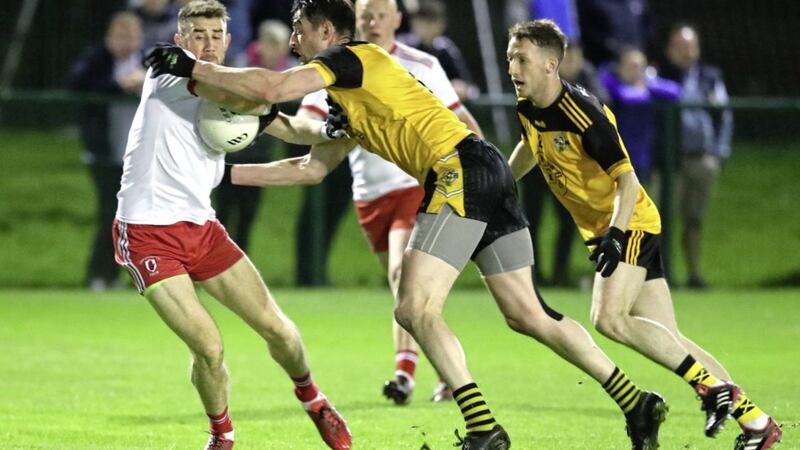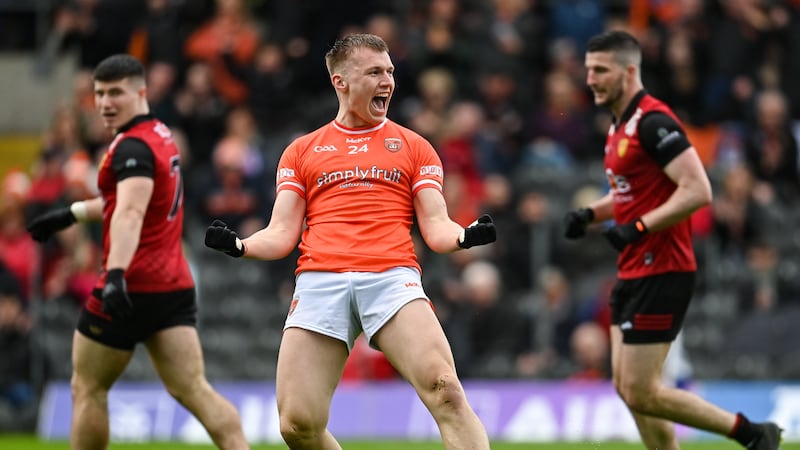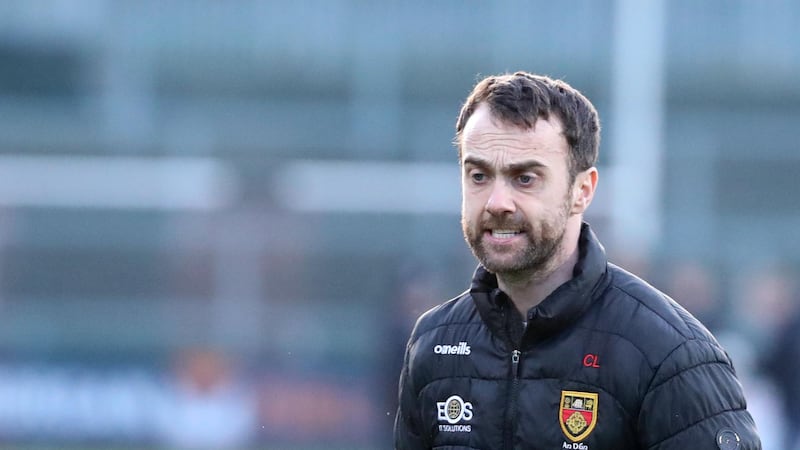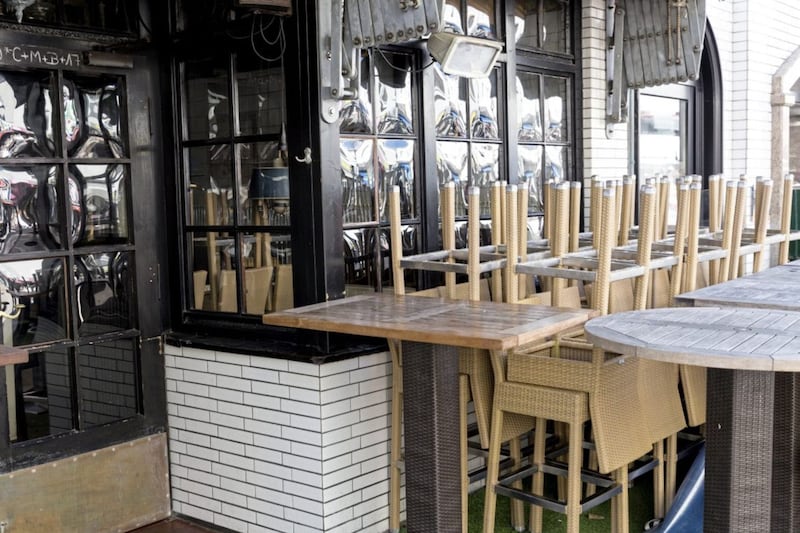Legal expert and guest columnist Paul Lenehan gives his view of Antrim chairman Ciaran McCavana's controversial decision to bring a halt to the much talked about Antrim SFC semi-final replay between Lamh Dhearg and Portglenone last week and considers the moral and technical implications...
It was the moral thing to do. That was the final word by Antrim County Chairman Ciarán McCavana, when explaining his decision to intervene in the Antrim SFC semi-final between Lámh Dhearg and Casements at The Dub last Thursday night.
Both teams had given everything and remained inseparable after 70 minutes of football, two periods of extra time and 10 place kicks apiece. Many of these amateur players were carrying knocks.
It was 10.30pm and most had little, by way of reserves, in the tank. The county chairman had seen enough and made a bold call to intervene.
In a statement a spokesperson for the GAA addressed the issue by indicating that the game was convened under Antrim County bye-laws and therefore the chairman was entitled to take the steps he took.
This assessment is questionable. The Rules of the GAA state that while county boards are obliged to pass bye-laws, any such bye-laws must not be in contravention of GAA rules as defined by the GAA’s Official Guide.
The Official Guide contains “winner on the day” provisions. These rules also offer a degree of discretion to county championship organisers in terms of how drawn games are brought to an end.
However, the rules quite clearly indicate that any such decisions are made prior to the competition, or with agreement, prior to the date of the specific game.
Rules, and compliance with them, are necessary so that participation and competition in sport has order to it. Without such organisation there would be chaos.
It therefore seems obvious to say that there is an imperative on all participants and organisers alike, to adhere to whatever rules are in place for that particular sport.
Indeed, there may even be merit in the argument that such a requirement should be without exception. Any deviation from the rules sets precedents for further divergences which ultimately can lead to widespread non-compliance and lack of conformity, which in turn can lead to an unfair playing field and unfairness.
This is not without a hint of irony, as when one thinks of unfairness in sport, one thinks of the ethical and moral arguments, which in turn takes us back to the decision that was made at The Dub, which had morals and fairness at its very core.
The decision to end the match in that manner was unapologetically grounded in moral and ethical deliberations; in the circumstances that had presented themselves on the night in question.
Yet, in coming to this decision there appeared to be some form of implied acknowledgement that it may not entirely comply with the rules.
In June 2016 the World Anti-Doping Agency (WADA), Ethics Panel, produced a document entitled 'Guiding Values in Sport and Anti-Doping'.
In attempting to provide some meaning to the term “the spirit of sport”, the WADA Panel provided a considered, and on point declaration, stating that the spirit of sport is “the celebration of the human spirit, body and mind, and is reflected in values we find in and through sport, including ethics, fair play and honesty; health; excellence in performance; character and education; fun and joy; teamwork; dedication and commitment; respect for rules and laws; respect for self and other Participants; courage; community and solidarity.”
Adherence to the rulebook represents only one of many ingredients in this definition of what constitutes the “spirt of sport”. What might be considered ethical and moral considerations are much more prevalent in this definition and rightly so. If one strips it down to the core reason why anybody becomes involved in sport, then surely, that “spirit” that makes sport what it is, will be at the forefront of most people’s considerations.
This was the right thing to do and Croke Park was well advised to tow that very obvious line. This group of amateur players had put their heart and souls into a pulsating battle and nobody on that field deserved to leave The Dub a loser. That would have been contrary to the very spirit of sport that had likely driven each and every one of those players to leave everything they had on the field that night.
In an era when the spectre of professionalism encroaches ever more into the GAA’s amateur ethos, how refreshing it was to see a county official place the welfare and needs of these amateur players, in full and centre viewing, regardless of what the rulebook said.
Rather than scrutinising the GAA Rulebook for infringements; Antrim GAA, and McCavana in particular, should be commended. The decision represents everything that is good about the GAA and sport.
What a rulebook says about the matter, in this instance, is quite frankly neither here nor there.







